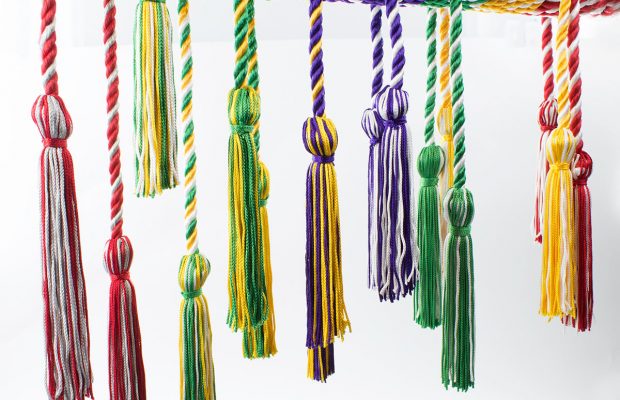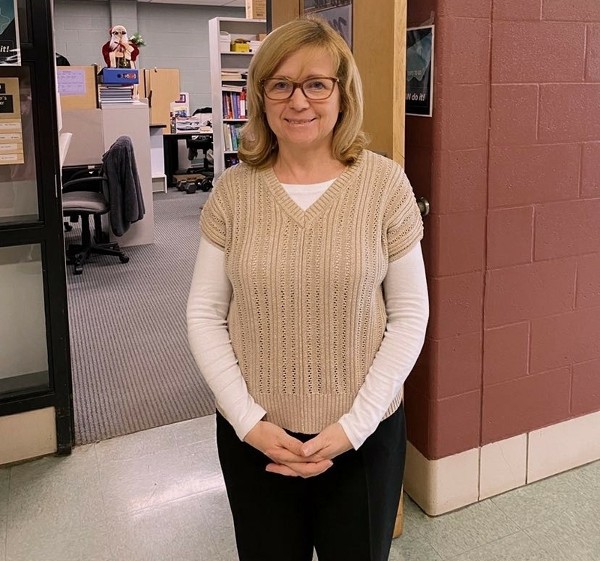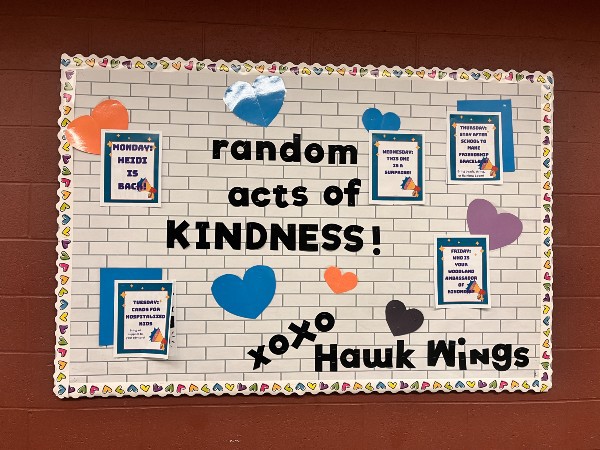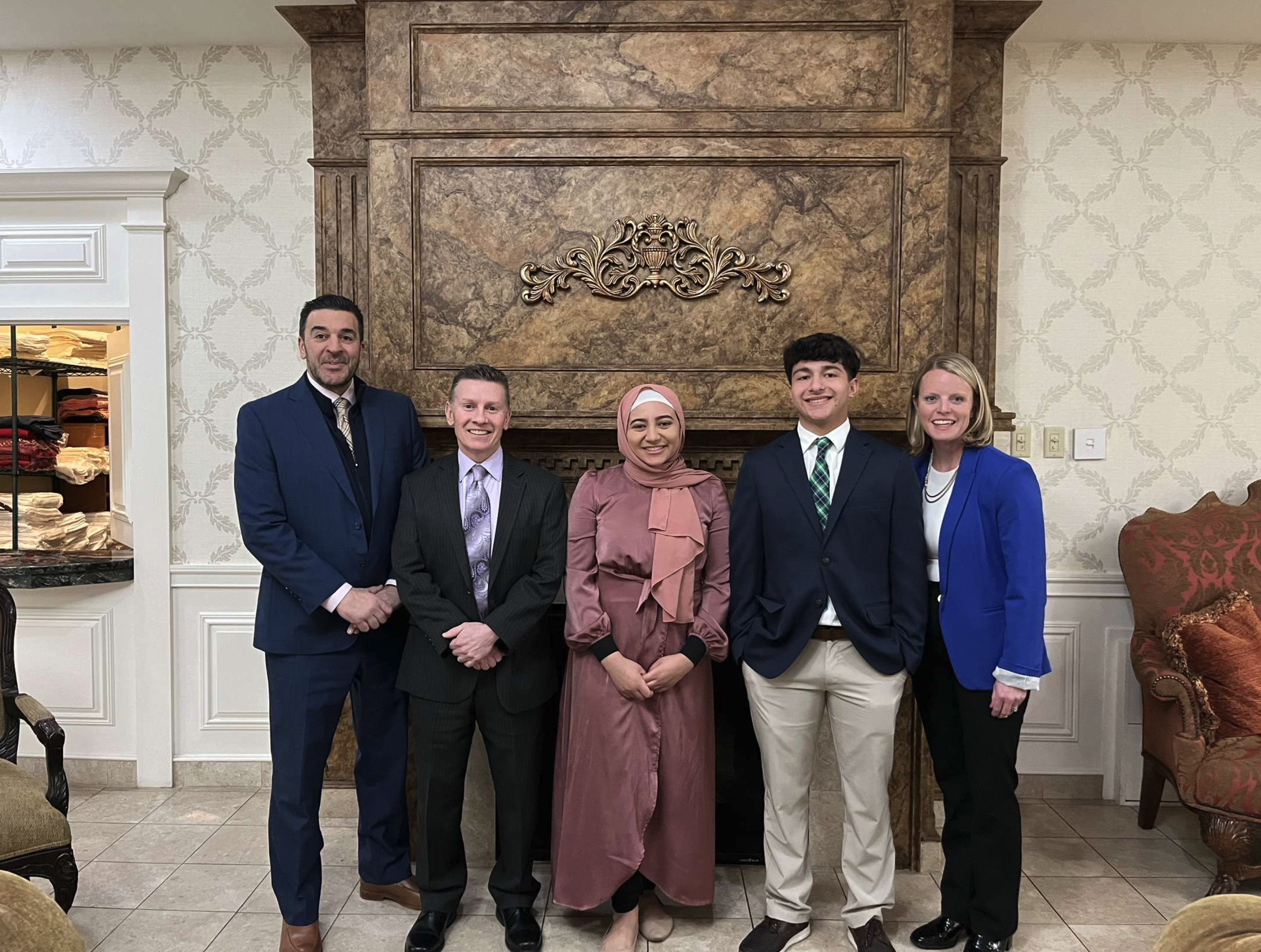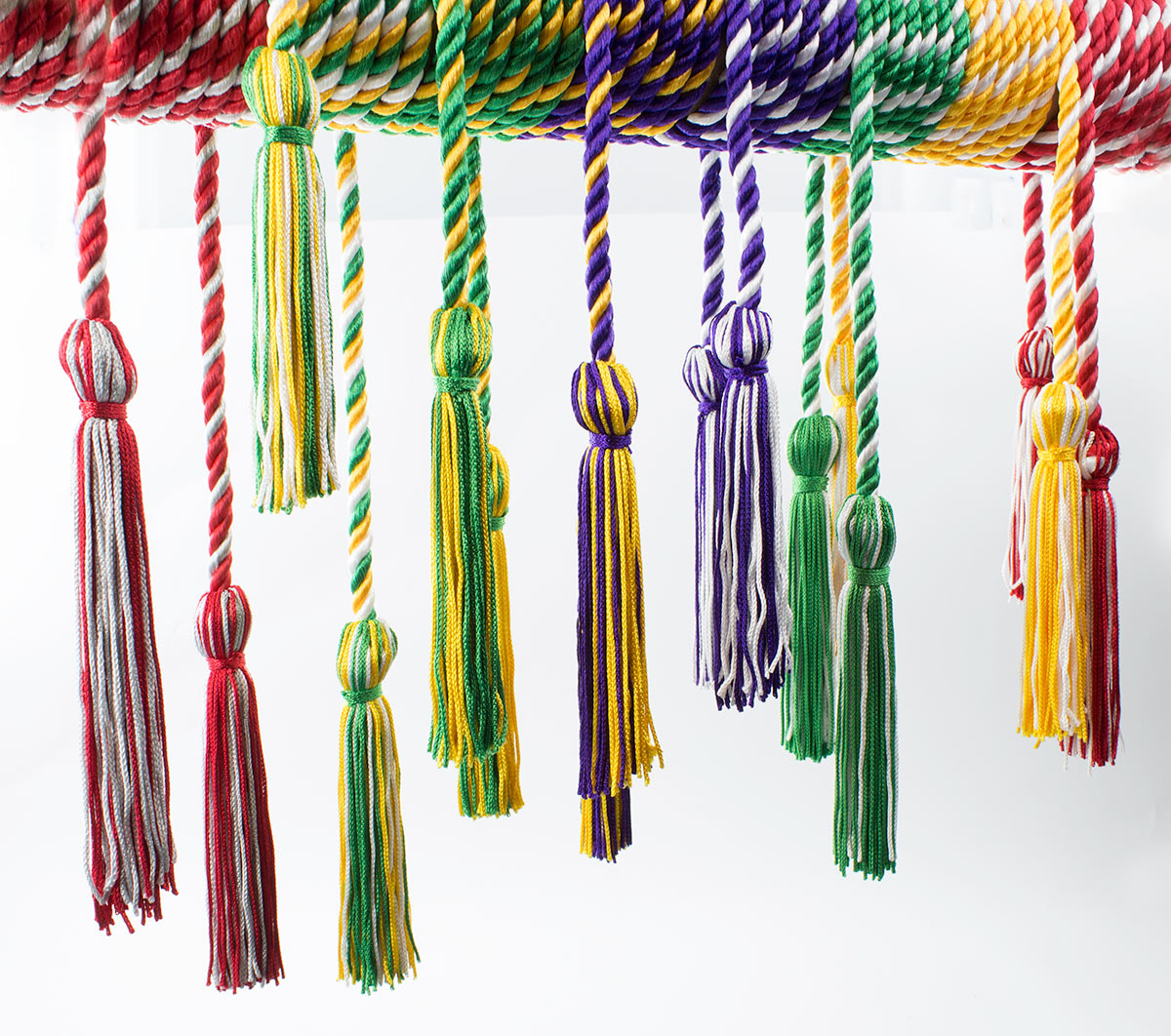
Graduation is the most important time for high school seniors. There are many excitements: enjoying time with family, walking across the stage to receive a diploma and public recognition of achievements to others. One way for students to flaunt their achievements is with honor cords.
Honor cords are intertwined pieces of cloth that are worn around the neck like an open necklace. Though they just seem like a rope to some, cords have meaning. Each color or design signifies a student’s outstanding participation in an honor society or other important organization. All students wear them with pride because they like to be recognized for their personal accomplishments and contribution to the school.
Woodland’s rules about the distribution of honor cords have always been conservative. The only organizations who are permitted to wear cords at graduation are National Honor Society; World Language Honor Society (composed of both Spanish, Capítulo Miguel de Cervantes of the Sociedad Honoraria Hispánica, and Italian, Capitolo Dante Alighieri of the Società Onoraria Italica); the mathematics honor society, Mu Alpha Theta; and Student Government. This rule has gone uncontested until last year’s graduation when the Timber Team petitioned to obtain cords but were denied.
However, some organizations, such as DECA, wore their cords without permission from the administration. The Quill and Scroll International Honorary Society of High School Journalists had their charter approved by the administration, but not necessarily their cords; advisor James Amato claims administration approved his society, therefore his cords, yet the rebuttal comes that the cords were worn unexpectedly. The traditional rules have been upheld for the first seventeen graduations, and the administration wants to return to the conventional procedures.
In allowing teams and others besides the main honor societies at Woodland to wear cords, students got the impression that they could wear cords for all societies and achievements. Administration soon decided this was not the case. According to Woodland principal Kurt Ogren, he met with vice principal Dana Mulligan, among others, to clarify their rule this December: the only organizations to wear cords at graduation would be the three honor societies and Student Government.
Graduation is a time to look to the future. According to Ogren, cords should be kept to a minimum.
“My goal for graduation is to be a team as much as we can. Teams wear uniforms. I want us to be uniformed, and look good. Here’s West Point [and the] video [of] their graduation; to me, that’s more what to shoot for,” Ogren explains. “Some high school graduations I’ve been to… if you get too loose, you have people writing inappropriate things on the back of their mortarboard…. It gets sloppy, but I want it to be for the kids. This is an honorable, respectful ceremony. For some students…it’s a one-shot deal.”
[pullquote]“We want to be recognized for what we do. This is a perfect opportunity for administration and the school to show us that they care. To show us that we actually aren’t just performing to a brick wall, and instead, show that they value us and that the work we are doing is important.”
– Jen Guluzy[/pullquote]
Cords are inherently about the individual, and to recognize an abundance of organizations would detract from the spirit of dignified unity Ogren visualizes for Woodland. There may be many cords adorning one gown, but another student may have none- not because that person is less of a student, but they may not have the opportunity to join an activity.
Ogren has been working at Woodland for the past four years. Previously, he worked at West Haven High School, where honor cords were also a debated topic: “My personal experience [in the school] where I was, we would have a cord for every club. Some kids had 20 cords, some kids had 10, some kids at five, and some kids had none,” Ogren narrated.
The parents of the students who had no cords went to their Board of Education about it, because their kids worked just as hard as the students who did have cords. The thing was, this student went home right after school to take care of their younger siblings, and when one of the parents returned, went right to his job until 9:00 P.M. Students like these simply don’t have the time to involve themselves in after-school activities because they are supporting their family.
“We actually switched from where cords were the biggest thing and people loved it to people having empathy with this group [of] people who had no cords,” Ogren said. “They just agreed and we had it.”
There are certainly students at Woodland in the same situation, yet there are more students who are involved in honor societies who feel understandably slighted.
One such student is president of the Thespian Society, Jen Guluzy. The Thespian Society is an honor society for theater that is relatively new to Woodland. Though the Woodland chapter was established three years ago, the Thespian society has multiple members with recognized statuses for academics and theater.
According to Guluzy, honor societies, such as the Thespian Society, are completely valid societies with fantastic achievements. They have charters, like National Honor Society, World Language Honor Society, and Mu Alpha Theta, and these societies have criteria needed to qualify for membership. For example, the Tri-M Music Society (established last year by music teacher Marissa Iezzi) requires high grades, in particular, high music grades.
There are organized meetings and participate in community service activities. All honor societies are expected to pay for their own cords, which means they paid for and earned the notion of recognition. If these honor societies do all the same things that the recognized societies do, they should be recognized as well.
That is not to say administration is not open to suggestions. A student in the class of 2018 wore a hot pink cord that recognized her perfect attendance from kindergarten through senior year.
“We did a little research, and we thought that really stood out and merited recognition,” Ogren said. “It may not happen again for another 10 or 12 or 15 years. That student from kindergarten through 12th grade never missed one day of school.”
According to Ogren, he is open to outstanding suggestions from individuals, but the administration’s decision remains firm on organizations. For an individual student to get a cord, it would have to be a rare achievement that was researched by administration. Guluzy has another view on the rules:
“I honestly believe that only core honor societies receiving cords is a very good idea. I just wish that there was more thought put into what makes an honor society,” said Guluzy. “Only acknowledging that three honor societies exist in the school is simply incorrect, as [Woodland has] multiple other honor societies that are legitimate within the United States of America, not to mention internationally.”
There are multiple honor societies within Woodland. There is, of course, Mu Alpha Theta, World Language Honor Society, and National Honor Society. Woodland also has branches of Quill and Scroll Honor Society, Tri-M Music Society, and the Thespian Society. All of these organizations are nationally recognized honor societies and contribute to the Woodland community, but are not permitted to wear their honor cords at graduation. Senior members of these societies are angry because of the lack of recognition they feel they deserve, rather than feeling resentment because the societies that are being recognized should not be. All honor societies deserve the recognition they have, but equal contribution demands equal respect.
———————————————–
5/20 2:50PM – Updated to note that the Timber Team as denied cords, not permitted as originally reported.
















